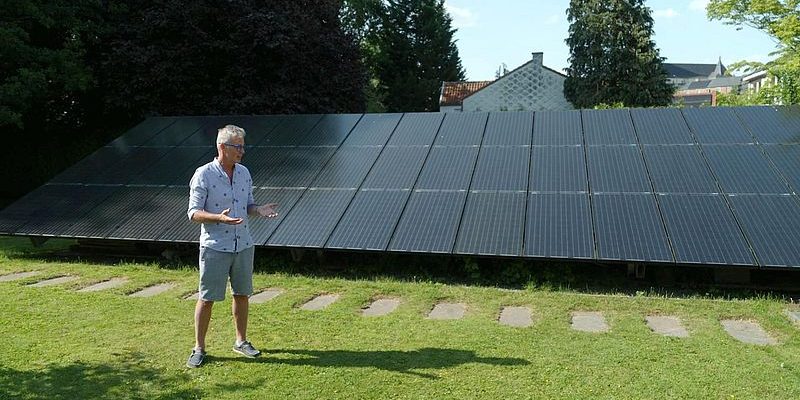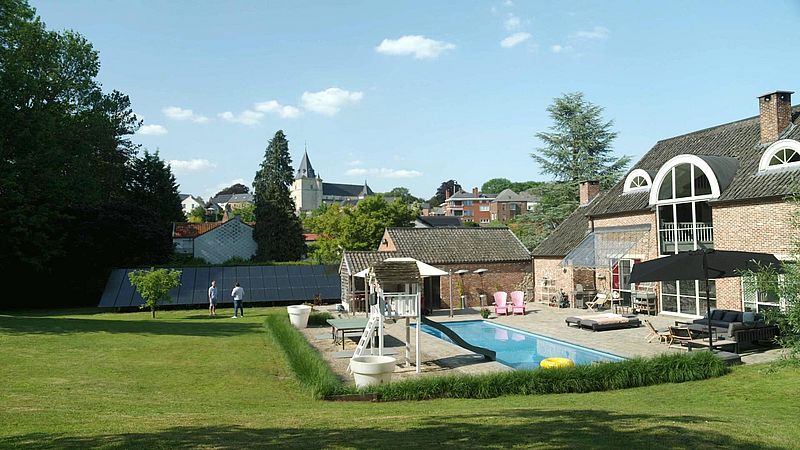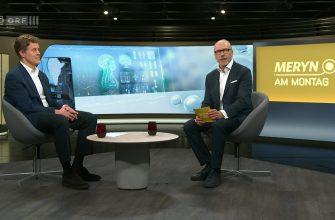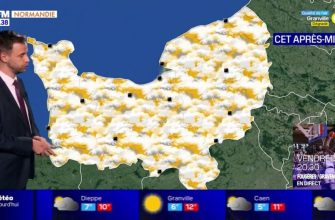If the solar panels on your roof produce more power than you consume, you can only sell that excess power in the Netherlands to your energy supplier. Often at a low price. In Flanders they do it differently. You can resell it there.
Since 1 June last year, residents of the Flemish part of Belgium have been allowed to resell the sustainable energy they generate and have left over to private individuals. This is called energy sharing. They get a higher price for that than when they sell it to their energy supplier.
‘Everything is possible’
There are now almost 2,000 people who use energy sharing and about 200 are added every week. “You can share with your neighbour, with your aunt. There are parents who donate their surplus energy to their children who live elsewhere,” says Björn Verdoodt of the Flemish grid operator Fluvius, who facilitates energy sharing.
“You can even share energy with yourself,” he continues. “Suppose you have a holiday home and you have solar panels on the house where you live, then you can use the electricity you have generated at home in your holiday home. Everything is actually possible, as long as you are with the same grid operator.”
also look at
More beneficial for both parties
In Belgium, energy sharing is cheaper if you do it with another private individual. Where returning it to your energy company yields about 10 cents, surplus energy is supplied by private individuals for about 20 cents. It is also cheaper for the private buyer, who then pays 20 cents instead of the more usual 30 cents. So a win for both sides.
Philippe Bogaert is one of the first energy sharers in Flanders. There are 60 solar panels in his backyard. He uses it to heat his house and swimming pool and to charge his car. He sells the remaining 20 percent via a website, where he is linked within a few clicks to a customer who needs approximately the amount of his surplus power, he says.
Why cheaper?
As a customer with a variable energy contract, you currently pay approximately 40 cents per kilowatt hour (KWh) of energy. That is also roughly the rate you get when you supply excess power from your solar panels back to your energy supplier. This falls under the net metering arrangement.
But as soon as you return more than you consume, the compensation is considerably lower, about 10 cents. If private individuals, as in Flanders, are now given the opportunity to sell electricity among themselves, the selling price they set could be, for example, 20 cents.
The selling private person will then receive 20 cents instead of 5 cents. And the purchasing private person then pays 20 cents instead of 40 cents. The total benefit could be even greater if the net metering scheme is gradually phased out in 2025.
Compete with energy suppliers
“You get cents from the energy supplier for your excess electricity, you get euros from the private individual, so to speak,” says Philippe.
“I think the difference between getting 10 cents and paying 30 cents is very big,” he continues. “I think it is very healthy that there is extra competition between small private individuals and the large energy suppliers. There is enough fat on the bones there. In addition, I believe in a sustainable economy in which we coordinate everything as much as possible.”
Smart meter needed
Grid operator Fluvius registers deliveries between private individuals. The condition is that both have a smart meter that is set up in such a way that the supply or consumption of electricity is recorded every 15 minutes.
“We keep track of what is supplied and used every 15 minutes. That power ultimately has to be deducted from the power supplied by the regular energy supplier,” Verdoodt of Fluvius explains.
Phasing out netting scheme
The net metering scheme enables Dutch households with solar panels to supply their excess electricity back to the electricity grid and settle this with their energy bill. From 1 January 2025, the net metering scheme will be phased out gradually.
This means that the financial benefit of netting is gradually reduced. Instead of settling the full feed-in, a smaller percentage of the feed-in electricity is reimbursed. Households with solar panels will receive less financial benefits in 2025 for their electricity that is supplied back.
Up to and including 2024, you may still net all the electricity you generate (100 percent), in 2025 and 2026 you may still net 64 percent. After that, the scheme will be reduced annually by 9 percent up to and including 2030. From 2031, it will no longer be possible to offset self-generated electricity. You can then feed back the excess generated power.
also look at
Not everyone is happy
Not all Flemish energy suppliers are happy with the new option of energy sharing. For example, some suppliers charge additional administration costs that can amount to 150 euros per private energy sharer.
“They try to counteract it, to scare you off,” says Philippe. “Fortunately, you can then switch to another company that understands that this is also an answer to the desire to share more sustainable energy with all of us.”
Law needs to be changed
In the Netherlands, careful consideration is now being given to whether you can sell your surplus power to another private individual. Also because the European Union insists on it.
But to make that really possible, the law needs to be changed. Next Friday there will probably be a letter from the cabinet about the new energy law. It is announced that this possibility will be investigated.
To ask? Ask them!
Do you have any questions after reading this article or do you want to comment? Send us a message here in our chat.






